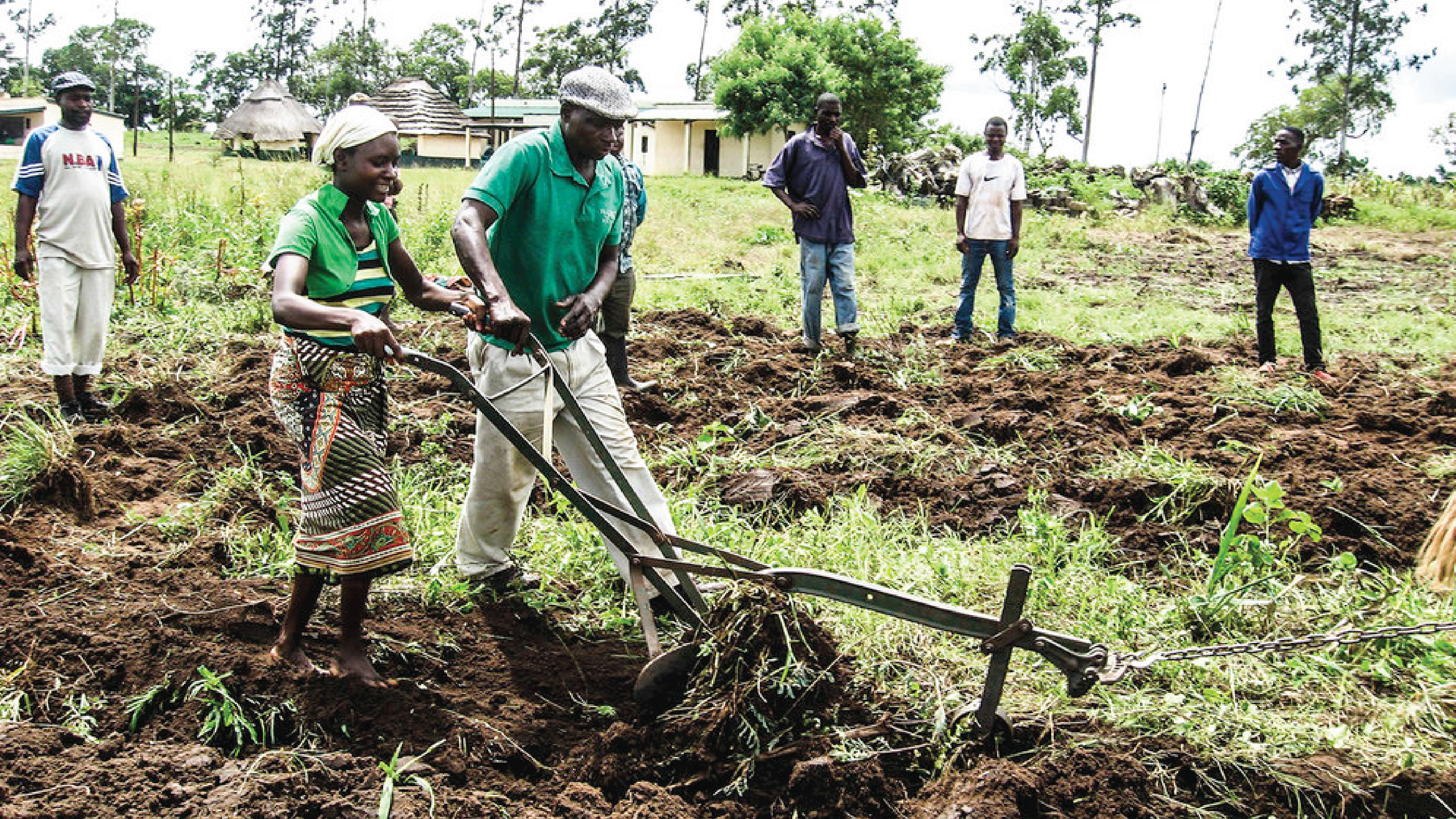Kalamazoo-Area Nonprofit Reaches into the Past to Help Farmers’ Futures
ISIS, plagues of locusts, cyclones, drought, flooding, and military coups are just some of the challenges Tillers International faced over the last 12 months while helping small-scale farmers in developing countries. Fortunately, teaching logging with draft horses in Kalamazoo County is far safer.
“We’re basically ‘farmers without borders,'” said Lem Montero of Tillers International. “We work with farmers to help them improve crop yields to better provide for themselves and their communities.”
Tillers International, founded in Kalamazoo in 1981, is a 501(c)(3) specializing in adapting historic American farming tools and methods to help farmers in countries such as Burkina Faso, Ethiopia, Madagascar, Mozambique, Uganda, and other countries where people rely on draft animals as the primary source of power on the farm.
Millions of farmers around the world can’t afford to buy or maintain tractors or other modern agricultural tools which forces them to rely on doing excruciating tasks by hand or with oxen or donkeys. When tractors became popular in the United States, decades worth of animal-powered tools such as plows, planters, and weeders became antiques. However, versions of those antiquated implements can serve as the foundation for tools that can help farmers in developing countries today.
Organizations such as the United States Agency for International Development (USAID), Heifer International, the Land-O-Lakes Venture 37, Adventist Development & Relief Agency (ADRA), and other humanitarian organizations, have relied on Tillers International’s expertise with draft animals and appropriate scale mechanization.
Tillers International routinely works shoulder-to-shoulder in the field conducting research and development with universities such as Michigan State University, and the University of Illinois at Urbana-Champaign, and with colleges in host countries such as the l’Universite Nazi BONI, Bahir Dar University, and the Superior Polytechnic Institute Manica on tools and methods for local farmers.
“We commonly work in countries where food security is a serious concern,” said Montero. “We use a ‘teach a man to fish’ approach so that the communities continue to thrive after we leave. Many farmers who have followed the training have gone from barely providing for themselves to being able to employ several neighbors.”
Many of the skills Tillers International teaches abroad are taught to the public at their R&D farm in Scotts, MI, to help support their mission. Typical classes include old-school skills such as hatchet making, blacksmithing, timber framing, woodworking, farming with draft horses, and others.
The classes attract everyone from historians, to people interested in sustainable farming, to artisans, to missionaries, to Peace Corp volunteers, to even National Guard units from Indiana and Michigan before being deployed to help farmers in Iraq and Afghanistan.
Due to recent changes to USAID funding and in the removal of tax advantages to smaller donations to nonprofits, Tillers International is reaching out to the private sector. They’re trying to connect with individuals and corporations interested in keeping traditional practical skills alive while also sharing those skills to reduce hunger and poverty in developing countries.
Tillers International would like to invite members of your organization to schedule a visit to their R&D farm in Scotts or for a cup of coffee in Kalamazoo to see how their classes or their overseas work can be of interest to you, your employees, or your business.
For more information, please visit www.tillersinternational.org or call (269) 626-0223.

